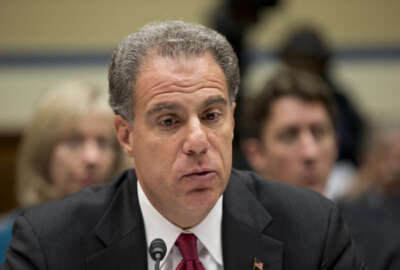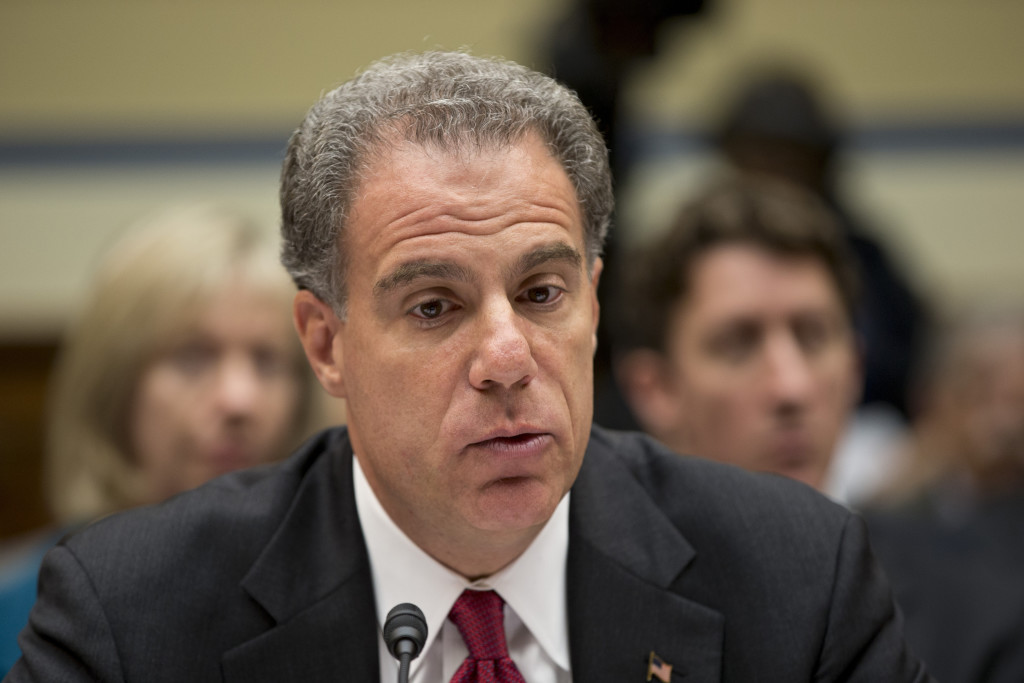
DoJ proposal on records access a ‘threat to independence,’ says IG council
The Council of Inspectors General on Integrity and Efficiency is urging lawmakers to pass legislation restoring access to records and information for federal in...

The Justice Department’s inspector general is urging lawmakers to reject a legislative proposal that he warned would limit federal inspectors general from doing their job as government watchdogs.
In a Nov. 4 letter addressed to a dozen congressional members, Michael Horowitz , chairman of the Council of the Inspectors General on Integrity and Efficiency, warned the DoJ’s proposed amendment to a section of the Inspector General Act of 1978 would “restore access authority to only one Office of Inspector General”— DoJ’s office — and leaves out any mention of the more than 70 other IGs across the government.
“The DoJ’s proposal is clearly inadequate and would leave in place a threat to the independence of all other Offices of Inspector General. Indeed, we have seen the impact of this threat at both the Peace Corps and the Commerce Department. Inspectors General at both agencies have faced claims by their agency’s counsel that they are not entitled to access all records in their agency’s possession,” Horowitz said in his letter. “Effective and independent oversight is the mission of all inspectors general and, therefore, all inspectors general require timely and independent access to agency information necessary to carry out that responsibility. This is a bedrock principle of the IG Act.”
The Justice Department sent its own letter Nov. 3 to a group of congressional members who’d raised concerns this summer when the Justice Department’s Office of Legal Counsel made a decision that inspectors general must obtain permission from their agencies before gaining access to certain documents like grand jury proceedings, wiretaps or credit information.
The OLC’s decision grew out of legal objections put forward in 2010 by the FBI’s Office of General Counsel over the IG’s ability to access grand jury, wiretap and credit information. Prior to that, the IG had routinely received that information from DoJ and the FBI.
In his letter to congressional members, Assistant Attorney General for Legislative Affairs Peter Kadzik said the department was struggling with its own duties to uphold transparency and allow IGs to do their job, while also preserving individual rights.
“On the one hand, the Inspector General Act of 1978 grants each inspector general a right to access ‘all records’ of the agency within its jurisdiction,” Kadzik said. “For the vast majority of documents the Department’s OIG seeks, this provision clearly establishes the OIG’s right to obtain all relevant materials in the Department’s possession. On the other hand, Congress has also enacted statutes to protect individual rights to privacy and due process. These statutes tightly regulate the disclosure of specific kinds of highly sensitive personal information such as intercepted private phone conversations, confidential grand jury testimony, and private banking, credit, and employment informant. Under current law, the Department’s legal dilemma when it receives requests for information covered by such statues results from the difficulty in knowing whether to follow the IG’s Act’s command to disclose ‘all records’ or the command to ‘not disclose’ or ‘not disseminate’ the relevant materials except under the terms of the particular statute.”
Kadzik said the department stood behind the OLC’s “reasonable interpretation of the IG Act” but was also open to work with lawmakers to ensure OIGs get “access to the information he needs to perform his office’s vital oversight mission.”
Among the lawmakers working on this issue is Sen. Chuck Grassley (R-Iowa), chairman of the Senate Committee on the Judiciary. He’s also introduced the Inspector General Empowerment Act of 2015. The legislation has the bipartisan support 11 co-sponsors.
Grassley was one of the lawmakers to receive the Nov. 3 letter from DoJ.
In a statement Grassley was critical of the three-month response time from the Justice Department.
“We all lose when Inspectors General are delayed or prevented in doing their work,” he said. “Every day that goes by without a fix is another day that watchdogs across the government can be stonewalled.”
Copyright © 2024 Federal News Network. All rights reserved. This website is not intended for users located within the European Economic Area.
Related Stories

DoJ proposal on records access a ‘threat to independence,’ says IG council





